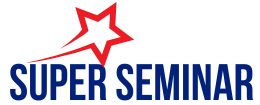In the fast-paced world of tech, a stellar DevOps resume can be the golden ticket to landing that dream job. But let’s face it—crafting a resume that stands out from the sea of bland templates can feel like trying to find a needle in a haystack. Fear not, though! With a sprinkle of creativity and a dash of strategy, anyone can transform their resume into a powerful marketing tool.
Imagine your resume as a superhero cape, ready to swoop in and save the day. It’s not just about listing your skills; it’s about showcasing your unique journey in the DevOps universe. From automating processes to fostering collaboration, your experiences deserve to shine. Buckle up as we dive into some essential tips that’ll help turn that resume from drab to fab, making recruiters sit up and take notice.
Table of Contents
ToggleUnderstanding DevOps and Its Importance
DevOps integrates development and operations to improve collaboration and productivity. This methodology accelerates software delivery and enhances software quality. By adopting DevOps practices, organizations achieve faster time-to-market for products. Teams work cohesively, reducing silos that traditionally exist between development and IT operations.
Automation plays a crucial role in DevOps. Continuous integration and continuous deployment streamline workflows. These processes minimize human error and enhance consistency in software releases. With automation, teams can focus on critical tasks such as monitoring and refining systems.
Furthermore, DevOps fosters a culture of collaboration and shared responsibility. Team members share ownership of both development and operational processes. This shift encourages innovative problem-solving and responsiveness to market demands. Enhanced communication within teams also leads to better alignment on project goals and timelines.
Importantly, metrics and feedback are fundamental in a DevOps environment. By analyzing performance data, teams can quickly identify areas for improvement. Iterative development allows for faster adjustments based on user feedback, ensuring product relevance and quality.
Investing in DevOps capabilities significantly impacts an organization’s success. Businesses that adopt these practices often experience reduced downtime and increased customer satisfaction. Such organizations position themselves competitively in the tech industry. Efficient software delivery ultimately leads to greater market responsiveness and adaptability.
Understanding these principles ensures better representation in DevOps resumes. Highlighting skills in automation, collaboration, and continuous improvement can capture recruiter interest effectively.
Essential Components of a DevOps Resume
Crafting an effective DevOps resume requires attention to specific components that highlight relevant skills and certifications.
Key Skills to Highlight
Technical proficiency stands out in a DevOps resume. Include skills in cloud services like AWS, Azure, or Google Cloud. Proficiency in automation tools such as Jenkins and Ansible is vital. Highlight containerization experience with Docker and Kubernetes, as these technologies streamline application deployment. Emphasize scripting languages like Python or Bash, which are essential for automation tasks. Collaboration skills should also be showcased, reflecting experience with Agile methodologies and team dynamics. Mention experience with CI/CD pipelines since they are crucial in DevOps environments. All these skills communicate a candidate’s readiness to contribute to streamlined workflows and prompt delivery.
Relevant Certifications to Consider
Certifications validate expertise in the DevOps field. Seek out certifications from reputable organizations like AWS Certified DevOps Engineer or Azure DevOps Solutions Expert. Consider Kubernetes certifications like Certified Kubernetes Administrator to demonstrate container orchestration skills. Google Cloud Professional DevOps Engineer certification is another valuable credential that signals capability. ITIL certifications also enhance a resume by showcasing knowledge in IT service management best practices. A combination of these certifications strengthens the application, appealing to potential employers in the competitive tech industry.
Tailoring Your Resume for DevOps Roles
Creating a tailored resume enhances the chances of landing a DevOps role. This process involves careful attention to the specific requirements outlined in job descriptions.
Analyzing Job Descriptions
Job descriptions outline essential skills and experiences desired by employers. Candidates should extract keywords related to tools, technologies, and methodologies demanded for the position. Comparing these keywords to one’s existing qualifications reveals alignment gaps. Highlighting relevant experiences that match these requirements strengthens the overall appeal. When an applicant demonstrates a clear connection between their experiences and job expectations, it significantly elevates their resume’s effectiveness.
Customizing Your Skills Section
Skills sections must reflect the most relevant proficiencies for each position. Listing automation tools like Jenkins and Ansible showcases technical capabilities directly tied to DevOps. Proficiencies in cloud platforms such as AWS and Azure also attract attention. Including containerization skills with Docker and Kubernetes further emphasizes technical versatility. Candidates should prioritize experiences that demonstrate collaboration and CI/CD pipeline expertise. Each skill listed should resonate with the job description, ensuring a tailored and impactful presentation.
Common Mistakes to Avoid in DevOps Resumes
Creating a compelling DevOps resume requires careful attention to detail. Avoiding generic templates is crucial. Generic formats often fail to highlight unique skills and experiences in the DevOps field.
Many candidates overlook the importance of tailoring resumes to specific job descriptions. Failing to align experiences with the requirements of the role might lead to missed opportunities. Incorporating relevant keywords directly from job postings strengthens connections to vocational expectations.
Neglecting to showcase technical skills is another common mistake. Employers seek candidates proficient in cloud services such as AWS, Azure, and Google Cloud. Automation tools like Jenkins and Ansible also warrant prominent display.
Inexperience in properly structuring the skills section can lead to misunderstandings. Candidates should prioritize skills like scripting languages, automation practices, and CI/CD pipelines. Effective presentation of these proficiencies captures recruiters’ interest.
Omitting quantifiable achievements will dilute the impact of a resume. Specific examples—such as successfully reducing deployment time by 30%—demonstrate real-world capabilities. When candidates provide concrete data, it enhances credibility.
Ignoring formatting consistency can diminish a resume’s professionalism. Ensuring uniform font styles, sizes, and spacing contributes to readability and visual appeal.
Finally, failing to proofread for spelling and grammar mistakes can reflect poorly on attention to detail. Candidates should always review their documents carefully or have a peer provide feedback. By focusing on these areas, individuals can significantly enhance their DevOps resumes.
Conclusion
A well-crafted DevOps resume can make all the difference in a competitive job market. By showcasing unique skills and experiences tailored to specific roles, candidates can significantly improve their chances of standing out to recruiters. Emphasizing technical proficiencies in automation, cloud services, and collaboration will resonate with hiring managers looking for the right fit.
Avoiding common pitfalls such as generic templates and neglecting keyword optimization is crucial. With attention to detail and a clear representation of achievements, individuals can transform their resumes into powerful tools that effectively communicate their value in the DevOps landscape. Taking the time to refine and personalize a resume can lead to exciting career opportunities in this dynamic field.




